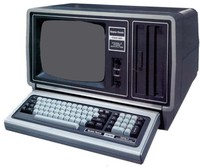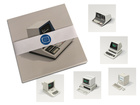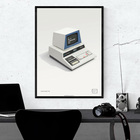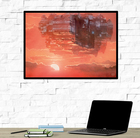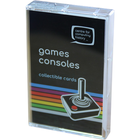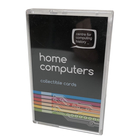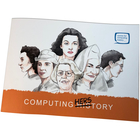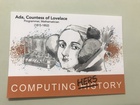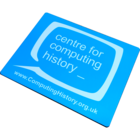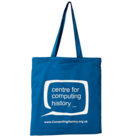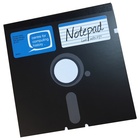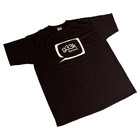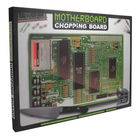TRS-80 Microcomputer System Model II
| Home > Browse Our Collection > Computers > Radio Shack / Tandy > TRS-80 Microcomputer System Model II |
|
TRS-80 was a brand associated with several desktop microcomputer lines sold by Tandy Corporation through their Radio Shack stores. The original "TRS-80 Micro Computer System", which was later known as the Model I, launched in 1977. It was one of the earliest mass-produced personal computers. The line won popularity with hobbyists, home users, and small-businesses. By 1979, the TRS-80 had the largest available selection of software in the microcomputer market. The Model II was not an upgrade of the original Model I as it was aimed more at the business market, rather than the personal home computing market. The Model III replaced the Model I in 1980. The Model II was introduced in May of 1979 and first shipped in October of 1979 in the US. It started shipping in the UK in April 1980. The entire computer and 12-inch, 80-character monitor is housed within one case, which also includes a ROM disk, one parallel and two serial ports. The basic configuration with 32K of RAM and 0.5MB of additional storage capacity sold for around £2000 and the expanded 64K RAM with 2MB storage for around £4000 when released in the UK. Specifications: CPU: Z-80A 8-Bit Processor (4.00 MHz) Video: 12-inch monitor; 24 lines x either 40 or 80 characters text; 32 “Business Graphic” characters Keyboard: 76-key including Numeric Keypad. Special keys include HOLD, ESCape, BREAK, CTRL, CAPS, REPEAT, Up, Down, Right, Left, F1 and F2. Expansion: Four plug-in card slots for future expansion or converting 32K to 64K. Storage: 8-inch SS/DD Floppy Drive (486,000 characters per disk) Subsystem: Direct Memory Access and Vectored Inputs As well as the original Model I and its compatible descendants, the TRS-80 name was later used as a generic brand on other technically-unrelated computer lines sold by Tandy, including the TRS-80 Model II, the TRS-80 Color Computer and the TRS-80 Pocket Computer. Our unit which has twin 8-inch disk drives was very kindly donated by Pat Dudman. Manufacturer: Radio Shack Comment on This Page Other Systems Related To TRS-80 Microcomputer System Model II:
This exhibit has a reference ID of CH30931. Please quote this reference ID in any communication with the Centre for Computing History. |
|


